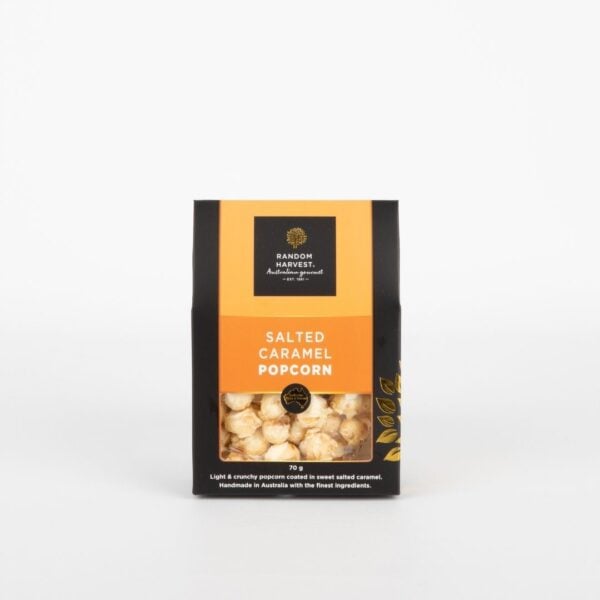What Are The Health Benefits Of Wine

Wine, often celebrated for its rich flavours and cultural heritage, is also the subject of extensive scientific research due to its potential health benefits. While it’s important to enjoy wine in moderation, studies have shown that certain compounds in wine can contribute to various health benefits, including cardiovascular support, anti-ageing effects, and potential cancer prevention. Check out Giftbasket’s range of wine hampers that include a delicious drop with accompanying snacks. Let’s explore the health benefits of wine and how it can fit into a balanced, healthy lifestyle.
- Heart Health and Reduced Risk of Cardiovascular Disease
One of the most researched benefits of moderate wine consumption is its positive impact on heart health. Red wine, in particular, contains antioxidants like resveratrol and flavonoids, which can help protect the lining of blood vessels in the heart. Here’s how wine may benefit your heart:
- Lowered Blood Pressure: Resveratrol, an antioxidant found in the skin of red grapes, has been shown to lower blood pressure by promoting the dilation of blood vessels, allowing blood to flow more freely.
- Increased Levels of Good Cholesterol: Moderate wine consumption is linked to higher levels of high-density lipoprotein (HDL) cholesterol, which is beneficial for heart health. HDL cholesterol helps remove low-density lipoprotein (LDL) cholesterol, the “bad” cholesterol that can clog arteries, reducing the risk of heart disease.
- Reduced Blood Clotting: Wine acts as a natural blood thinner. Certain compounds, including flavonoids, help reduce platelet aggregation, which is the clumping together of blood cells that can lead to blood clots. This effect, similar to that of aspirin, may help prevent heart attacks.
- Antioxidant Properties: Protection Against Free Radicals
Wine, especially red wine, is rich in antioxidants, which combat free radicals in the body. Free radicals are unstable molecules that can damage cells, leading to inflammation, ageing, and various diseases. The antioxidants in wine, including polyphenols, flavonoids, and resveratrol, help protect the body from oxidative stress.
- Anti-Ageing Effects: Antioxidants are known to slow down the ageing process, as they protect cells from damage. Resveratrol is particularly noted for its potential to activate enzymes associated with longevity and cellular repair.
- Reduced Risk of Chronic Diseases: Chronic inflammation is associated with many health conditions, such as diabetes, arthritis, and heart disease. Wine’s antioxidants can help reduce inflammation levels, potentially lowering the risk of these diseases.
- Enhanced Gut Health
Recent research has shown a link between moderate red wine consumption and improved gut health. The polyphenols in wine act as prebiotics, which means they provide fuel for beneficial gut bacteria. A balanced gut microbiome is essential for good digestion, immune support, and overall well-being.
- Increased Diversity of Gut Bacteria: The polyphenols in red wine promote a greater diversity of gut bacteria, which is associated with better gut health. A diverse microbiome helps maintain digestive balance, preventing issues like bloating, constipation, and irritable bowel syndrome (IBS).
- Potential for Weight Management: Improved gut health is also linked to better weight management. Research suggests that a balanced gut microbiome can aid in metabolism and reduce fat storage, which may assist in maintaining a healthy weight.
- Improved Cognitive Function and Brain Health
Moderate wine consumption, especially red wine, may have protective effects on brain health and cognitive function. Studies have shown that wine’s antioxidants can reduce inflammation in the brain, potentially lowering the risk of neurodegenerative diseases like Alzheimer’s and Parkinson’s.
- Enhanced Memory and Cognitive Abilities: Some research suggests that moderate wine drinkers may experience a slower rate of cognitive decline compared to non-drinkers. The resveratrol in wine has been linked to improved memory function and may also help prevent brain plaque formation associated with Alzheimer’s.
- Protection Against Stroke: The blood-thinning effects of wine may help prevent blood clots in the brain, reducing the risk of stroke. Additionally, the polyphenols in wine help protect blood vessels, ensuring better blood flow to the brain, which is essential for cognitive function.
- Lower Risk of Type 2 Diabetes
Moderate wine consumption has been associated with a reduced risk of developing type 2 diabetes. The resveratrol in red wine has shown potential in improving insulin sensitivity, which means that the body can more effectively manage blood sugar levels.
- Improved Insulin Sensitivity: Insulin sensitivity is essential for regulating blood sugar levels. When cells are more sensitive to insulin, the body needs less insulin to help glucose enter cells. This balance can help prevent insulin resistance, a precursor to type 2 diabetes.
- Lower Blood Sugar Levels: A moderate intake of wine has been linked to reduced blood sugar levels after meals, which can be beneficial for individuals who are at risk of diabetes or who already have the condition.
- Bone Health
Wine, when consumed in moderation, may have positive effects on bone density, which is crucial for preventing osteoporosis as we age. The silicon content in wine, especially red wine, may support bone mineral density and overall bone health.
- Improved Bone Mineral Density: Silicon is a mineral that plays a role in maintaining bone strength and flexibility. Studies have found that moderate wine drinkers may have higher bone mineral density than non-drinkers, potentially reducing the risk of fractures and osteoporosis.
- Anti-Inflammatory Effects: Inflammation can weaken bones and increase the risk of osteoporosis. The anti-inflammatory properties of resveratrol in wine may help reduce inflammation levels in bones and joints, supporting overall bone health.

- Potential Cancer Prevention Properties
Some compounds in wine, especially red wine, may offer cancer-preventive benefits. Resveratrol and other antioxidants have been studied for their potential to inhibit cancer cell growth and prevent the formation of tumours.
- Protection Against Certain Cancers: Studies have suggested that moderate wine consumption may lower the risk of several types of cancer, including breast, prostate, and colon cancers. Resveratrol has been found to inhibit the growth of cancer cells and may help induce apoptosis, which is the body’s natural process of eliminating damaged or harmful cells.
- Reduced Oxidative Stress: As a potent antioxidant, resveratrol can protect cells from oxidative damage, which can lead to mutations and cancer development. By neutralising free radicals, wine’s antioxidants may help prevent cellular changes that lead to cancer.
- Better Skin Health
The antioxidants in wine can contribute to skin health by protecting against environmental stressors and supporting skin elasticity. Moderate wine consumption, paired with a balanced diet, may have positive effects on skin appearance and overall skin health.
- Reduced Signs of Ageing: The polyphenols in wine can help reduce the appearance of fine lines, wrinkles, and age spots. These compounds prevent collagen breakdown, which is essential for maintaining firm and youthful-looking skin.
- Protection from Sun Damage: Certain antioxidants in wine have been found to help protect the skin from UV damage. While wine shouldn’t replace sunscreen, it may offer additional protective benefits by reducing the effects of sun exposure.
Moderation is Key
While the potential health benefits of wine are promising, it’s important to emphasise the role of moderation. For most adults, moderate drinking means up to one glass per day for women and up to two glasses per day for men. Excessive alcohol consumption can lead to numerous health issues, including liver disease, mental health disorders, and an increased risk of certain cancers. Here are some tips to enjoy wine responsibly:
- Stick to Standard Serving Sizes: A standard glass of wine is typically 150ml. Pouring larger glasses can lead to overconsumption without realising it.
- Alternate with Water: Drinking water between glasses of wine can help prevent dehydration and reduce overall alcohol intake.
- Avoid Drinking Every Day: Aim to include several alcohol-free days each week to give your body a break and avoid building a habit.
Final Thoughts
Wine has been enjoyed for centuries, both for its rich flavour and its potential health benefits. From heart health to cognitive protection, moderate wine consumption can be part of a healthy lifestyle when enjoyed responsibly. Remember to focus on quality over quantity, and pair wine with a balanced diet rich in fruits, vegetables, whole grains, and lean proteins for optimal health benefits. See the range of wine hampers Giftbasket has that make the perfect gift for all to enjoy the health benefits of a premium drop.







